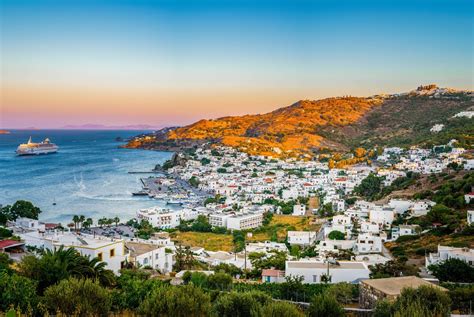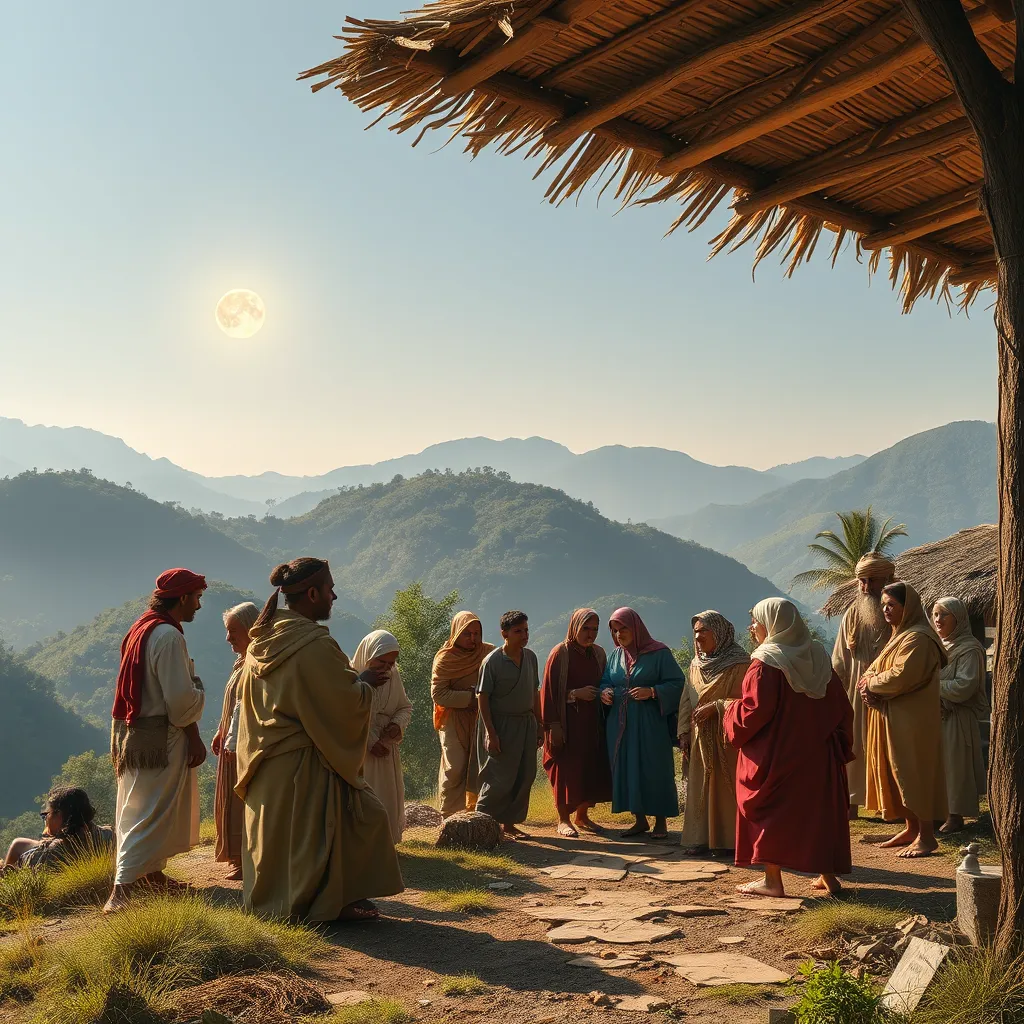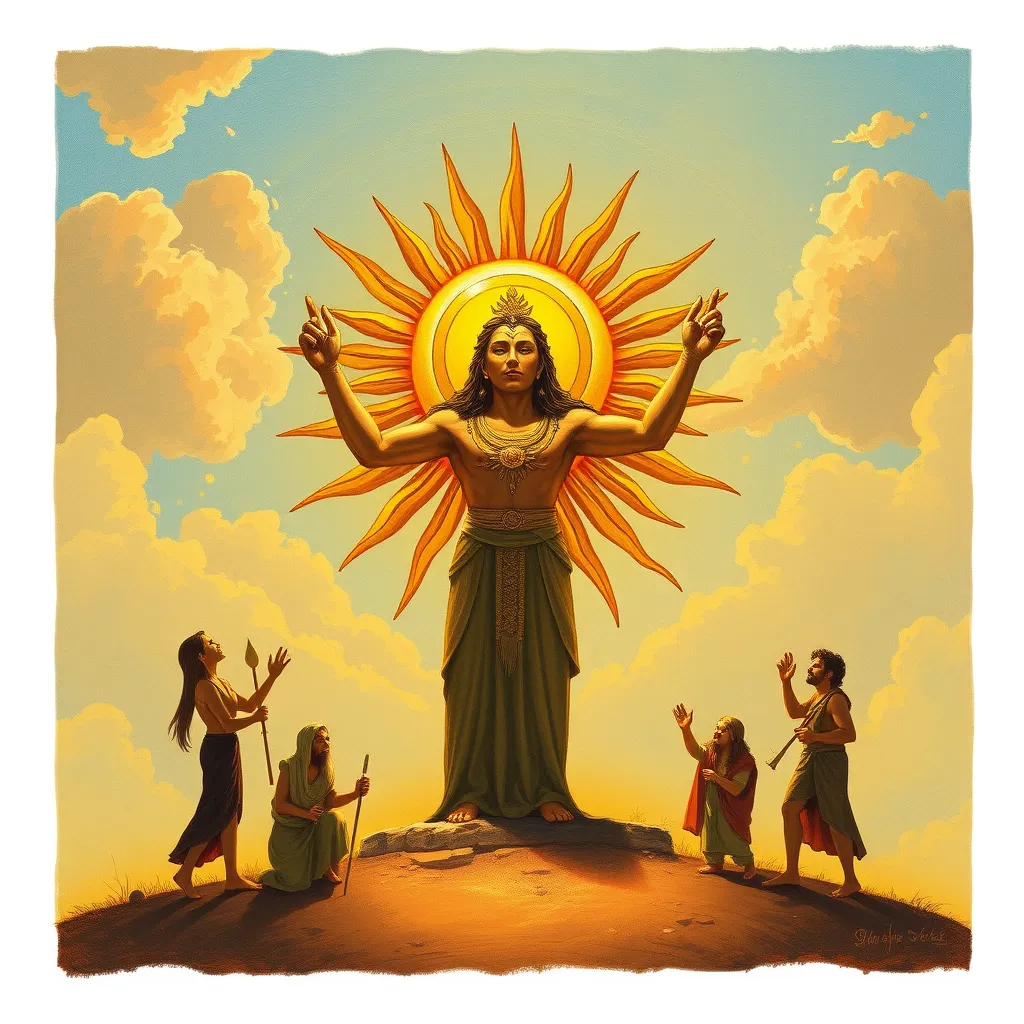
(*Scripture verses are from the NIV unless otherwise noted)
Chapter 1
9 I, John, your brother and companion in the suffering and kingdom and patient endurance that are ours in Jesus, was on the island of Patmos because of the word of God and the testimony of Jesus.
10 On the Lord’s Day I was in the Spirit, and I heard behind me a loud voice like a trumpet,
11 which said: “Write on a scroll what you see and send it to the seven churches: to Ephesus, Smyrna, Pergamum, Thyatira, Sardis, Philadelphia and Laodicea.”
Rev 1:9
I, John, your brother and companion in the suffering… was on the island of Patmos because of the word of God and the testimony of Jesus:
During the Roman era, Patmos was one of several “legally remote” locations where prisoners were held indefinitely without charge or trial, subject only to the will of the Roman emperor. These sites were often used to detain political or religious prisoners.
According to Eusebius, the Roman emperor Domitian sent John to Patmos in 95 AD was released less than two years later1. If John was somewhat younger than Jesus, he could have been upwards of ninety years old at the time of his release, making him likely the only apostle to have survived to old age.

According to Christian tradition, the other Apostles were martyred. John says he was on the island “Because of the word.” Eusebius (c. 260-340 AD) wrote:
Jesus’ disciples were warned that persecution would likely follow their bold testimony of him, and they, in turn, prepared believers for what was to come:
Matt 10:21 “Brother will betray brother to death, and a father his child; children will rebel against their parents and have them put to death.
John 15:20 Remember what I told you: ‘A servant is not greater than his master.’2 If they persecuted me, they will persecute you also. If they obeyed my teaching, they will obey yours also.
1 Thess 3:2 We sent Timothy, who is our brother and co-worker in God’s service in spreading the gospel of Christ, to strengthen and encourage you in your faith,
2 Thess 1:4 Therefore, among God’s churches we boast about your perseverance and faith in all the persecutions and trials you are enduring.
Heb 11:36 Some faced jeers and flogging, and even chains and imprisonment.
Research the persecution of Christians under Nero, Domitian, Diocletian, and Maximinus to understand better the trials the early church underwent. The Appendix offers a short synopsis of each.
Rev 1:10
On the Lord’s Day:
In Acts 20:7, Luke writes, On the first day of the week we came together to break bread. Paul spoke to the people and, because he intended to leave the next day, kept on talking until midnight

This verse in Revelation is the only place in the Bible that the expression “the Lord’s Day” is used. The phrase came into more common use by the second century AD, in some early Christian writings such as
For Christians, the Lord’s Day was Sunday, which was from sundown Saturday until sundown Sunday. According to the Gospels, Jesus was raised from the dead on Sunday, the first day of the week
Matt 28:1 After the Sabbath, at dawn on the first day of the week, Mary Magdalene and the other Mary went to look at the tomb.
1Cor 16:1 Now about the collection for the Lord’s people: Do what I told the Galatian churches to do. 2 On the first day of every week, each one of you should set aside a sum of money in keeping with your income, saving it up, so that when I come no collections will have to be made. 3 Then, when I arrive, I will give letters of introduction to the men you approve and send them with your gift to Jerusalem.
Justin Martyr (c.100 – c.165, AD) affirms that Jesus was raised on the day of the Sun (Apology 67), and also mentions that the memoirs of the apostles were read on the day called that of the sun, along with the writings of the prophets (First Apology, 67.3).
In Roman culture, Sunday was the day that honored the god of the sun, Sol. Jerome (c.342-420, AD) makes the ironic comment, If pagans call [the Lord’s Day] the ‘day of the sun,’ we willingly agree, for today the light of the world is raised, today is revealed the sun of justice with healing in his rays. (St. Jerome, Pasch.: CCL 78, 550)
On March 7, 321, Emperor Constantine I decreed that Sunday would be observed as the Roman day of rest:

On the venerable Day of the Sun let the magistrates and people residing in cities rest, and let all workshops be closed. In the country, however, persons engaged in agriculture may freely and lawfully continue their pursuits; because it often happens that another day is not so suitable for grain-sowing or vine-planting; lest by neglecting the proper moment for such operations the bounty of heaven should be lost. (Schaff, History of the Christian Church: Vol. II, page 380, note 1)
In 363 AD, Canon 29 of the Council of Laodicea prohibited observance of the Jewish Sabbath (Saturday), and encouraged Christians to work on Saturday and rest on the Lord’s Day (Sunday)3.
Rev 1:11
Write on a scroll what you see and send it to the seven churches:
There were more than seven churches in the Roman Province of Asia Minor, and there are still Christians worshiping in some of the cities mentioned by John. The history of each of the seven churches, Ephesus, Smyrna, Pergamum, Thyatira, Sardis, Philadelphia, and Laodicea, will be explored in more detail as the Revelation unfolds.
Eusebius gives a clue as to why these particular churches were chosen:

… Meanwhile the holy apostles and disciples of our Savior were dispersed throughout the world. Parthia, according to tradition, was allotted to Thomas as his field of labor, Scythia to Andrew, and Asia to John, who, after he had lived some time there, died at Ephesus. Peter appears to have preached in Pontus, Galatia, Bithynia, Cappadocia, and Asia to the Jews of the dispersion. And at last, having come to Rome, he was crucified head downwards; for he had requested that he might suffer in this way. What do we need to say concerning Paul, who preached the Gospel of Christ from Jerusalem to Illyricum, and afterwards suffered martyrdom in Rome under Nero? (History of the Church, 3:1)
At that time the apostle and evangelist John, the one whom Jesus loved, was still living in Asia, and governing the churches of that region, having returned after the death of Domitian from his exile on the island. (History of the Church, 23:1)
Footnotes
- Eusebius, History of the Church, Book 3, Chapter 23. ↩︎
- The Gospel according to Peter, is considered a non-canonical gospel and was rejected as apocryphal by the Catholic Church’s synods of Carthage and Rome, which established the New Testament canon. ↩︎
- “Canon 29 of the Council of Laodicea”. Ccel.org. 2005-06-01, as noted in Wikipedia article, Sunday, Retrieved November 10, 2021. ↩︎
*All Scripture quotations, unless otherwise indicated, are taken from the Holy Bible, New International Version®, NIV®. Copyright ©1973, 1978, 1984, 2011 by Biblica, Inc.™ Used by permission of Zondervan. All rights reserved worldwide. www.zondervan.comThe “NIV” and “New International Version” are trademarks registered in the United States Patent and Trademark Office by Biblica, Inc.™





